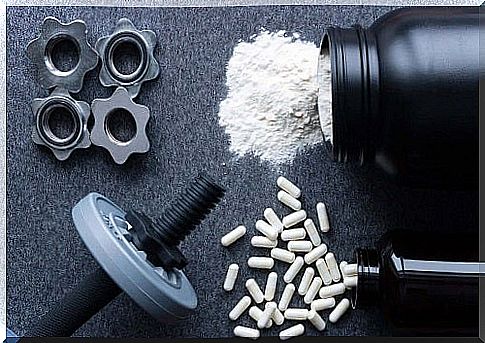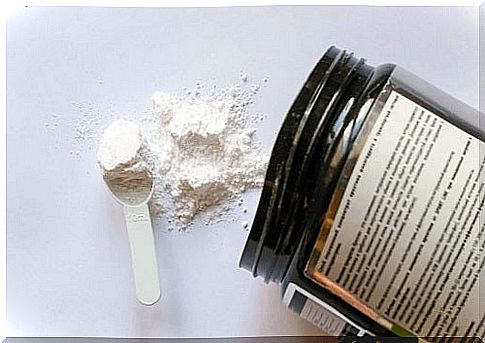Creatine Types: Properties And Uses

Today, most people around the world exercise, either as a hobby or professionally. Therefore, many products have been created to improve athletic performance. One of the most popular is creatine. Below, discover the main types of creatine, as well as their properties and uses.
Creatine is a non-protein nitrogenous compound. It is found in the muscles and brain to a lesser extent. The main food sources are red meat and seafood.
The main function of creatine is related to ATP synthesis (this substance provides energy during metabolism), which greatly improves athletic performance. However, creatine is also used to treat brain disorders and heart failure.
Types of creatine and their specific properties
This is the most popular creatine supplement used by athletes and is the purest form of the substance, as the other types are derived from it. Creatine monohydrate is very effective and has been shown to improve various aspects of fitness training, such as speed and maximum strength.
This compound does not contain additives. Thus, 88% of it is creatine, while the remaining 12% is water. It has the ability to hydrate cells, reduce cell damage and increase intramuscular deposits.

Phosphocreatine or creatine phosphate is a chemical compound found in the body with a high energy value. However, the level of its deposits is low. Therefore, it is one of the most sought after types of creatine. It contains creatine and phosphate in a ratio of 62-38.
It has the same functions as creatine monohydrate, which is why it is perfect for building lean tissue. In addition, because it is an additional source of energy, it reduces fatigue during training.
Also known as alkaline creatine or buffered creatine, it is the mixture of creatine monohydrate and alkalizing powders. The main idea of this mixture is to increase the pH of the compound to improve its absorption and to prevent the formation of creatinine, reducing kidney damage.
For a long time, this type of creatine was thought to produce better results than monohydrate. However, a recent study showed that there are no significant differences in performance.
Uses and safety of these types of creatine
Performance athletes use creatine to improve their speed, endurance and strength. In fact, experts recommend its use in sports such as rowing, high jump and football. Its effectiveness has been proven several times.
Creatine supplements can improve creatine deficiency syndromes (CCDS), which are congenital errors in creatine metabolism. The body is unable to produce it on its own. Even if there is not enough scientific evidence, doctors prescribe these supplements in cases of heart failure.
It is safe to consume different types of creatine, as long as you ingest them in the short term and in maximum doses of 5 g. However, you should consult a doctor before consuming any dietary supplement.
Possible benefits of creatine

Contraindications to the use of creatine
One of the first things that comes to mind when it comes to creatine intake is possible kidney damage. You should be very careful if you already have a kidney problem or if you have a high risk of suffering from one, especially due to excess protein.
In addition, you should avoid taking creatine along with nephrotoxic drugs, ie those that are able to affect kidney function. Taking both substances at the same time may increase the risk of kidney damage.
Other contraindications to the use of creatine are related to caffeine consumption. You should not eat them together, as the interaction of caffeine will reduce the effect of the amino acid on the muscles.
The main differences between the types of creatine
As I explained in this article, the types of creatine are very similar. They all have the same effects on muscles and there is not enough scientific evidence to say that one type is more effective than another.
The difference between these supplements is their solubility and the side effects they cause. In general, creatine monohydrate derivatives are more soluble and cause fewer stomach problems. However, you should always consult a specialist before taking dietary supplements.









